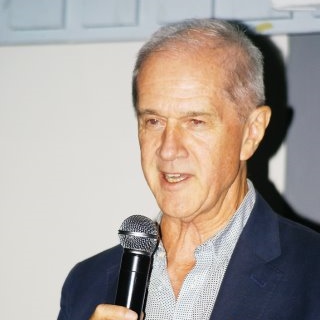
News

Meyer declares his confidence in Ramaphosa
MIRAH LANGER
“If you trusted us in creating the constitution, I think you can trust him today as well. He is absolutely the same person that I got to know. I can say that as a witness over many years. Not only in the negotiations, but after that, when he was in business, and more recently after he came back to politics.”
Meyer, who was formerly National Party Minister of Constitutional Affairs and Communications, Defence and Constitutional Development and Provincial Affairs between 1991 and 1996, spoke at a Dr Herzl Lodge Hebrew Order of David event in Orchards, Johannesburg, this week. He reflected on the past 25 years of democracy.
Meyer, now aged 71, said he had known Ramaphosa since 1988. When they worked on the constitution together between 1994 and 1996, Meyer was a member of the then ruling National Party while Ramaphosa served as the African National Congress’ chief negotiator. Meyer later co-founded the United Democratic Movement with Transkei leader General Bantu Holomisa in 1999. After retiring from politics, he announced that he was joining the ANC in 2006.
Meyer said that two facets of Ramaphosa inspired hope in him.
First, Ramaphosa’s modern leadership style boded well for the future.
“South Africa is supposed to be a modern country, but for nine years, we were ruled as if we were a traditional monarchy by a chief [President Jacob Zuma]. There was a complete disconnect between the manner in which we were ruled, and what we are supposed to be. Cyril has shown that he is bringing us back to modern aspirations.”
Second, it was great for South Africans that Ramaphosa was a “constitutionalist at heart”, declared Meyer, quipping that, “And I think I’m qualified to say this!”
Ramaphosa’s support for the constitution was vital as it remained the framework of a functioning democracy.
“The past nine years were very unhappy years in terms of the destruction that took place,” Meyer said. Yet, “the constitutional framework and the Constitutional Court came to our rescue. We have a set of institutions which keep our constitution intact.”
Looking ahead to the 8 May national elections, Meyer said that while he believed that Ramaphosa was the right leader, it was clear he faced some problems.
“His biggest enemies are not necessarily in the opposition, but in his own party. He is constrained.”
Nevertheless, Meyer said that one of the most promising aspects of having Ramaphosa at the helm was that the government would be amenable to partnering with business.
At recent talks between the public and private sector – which Meyer attended – Ramaphosa’s response to business leaders “gave me the belief that it is possible to come up with a plan to save the country”.
“Cyril realises that we have to open the door and work together on joint plans. We have to keep pushing if the door is there to be opened.
Meyer offered a similarly optimistic outlook on a number of other key issues.
While Eskom’s problems were huge, all South Africans could contribute to fixing them. For example, the new regime was open to renewable energy projects.
Asked about illegal immigration, Meyer said many foreigners had made a positive impact in the South African workforce. In addition, from a humanitarian point of view, “there is no way we are going to keep hungry people out of South Africa, and it would be unfair to do so”.
Moreover, as neighbours, South Africans should focus on helping countries like Zimbabwe to solve their core problems, rather than complaining about them.
Questioned about affirmative action policies, Meyer agreed that implementation had not been wholly successful. He said many “white businesses” were guilty of “fronting”, putting a “black face” on their business without actually transforming: “We enriched a few instead of enabling the masses.”
However, he said the challenge now was for businesses to find a way to put policies into practice in a meaningful way. For example, he suggested that businesses start giving their workers a share of profit. “That’s a completely different aspiration.”
On the subject of land reform, Meyer said that, on the one hand, it was crucial to rectify the injustices of the past. On the other hand, the government had come to realise that land had to have commercial value – particularly when it came to agriculture. This understanding had led to a more “balanced” viewpoint on the issue.
Meyer said South Africa’s most critical problem remained education – particularly the scrapping of vocational training.
“The biggest damage done by apartheid was to education. We created an inherent problem that will not go away for generations unless we have aggressive policies in place.”
Meyer said he still got “itchy” to do new things. He proposed that this was the right mindset to have. “Stop thinking about the past. Rather ask what we can do about tomorrow.”




